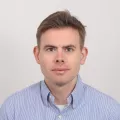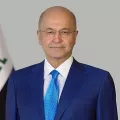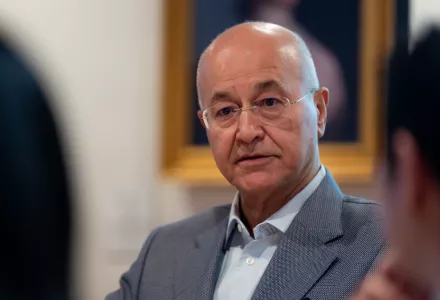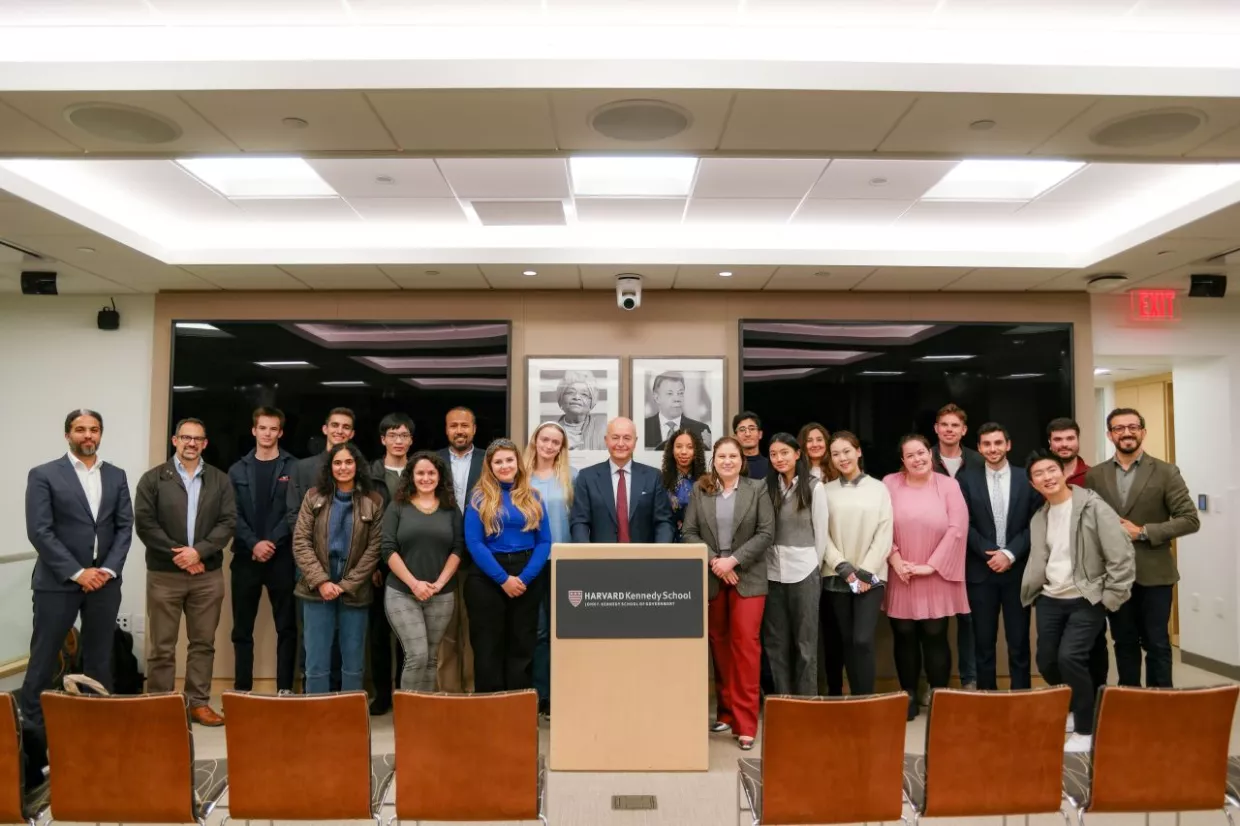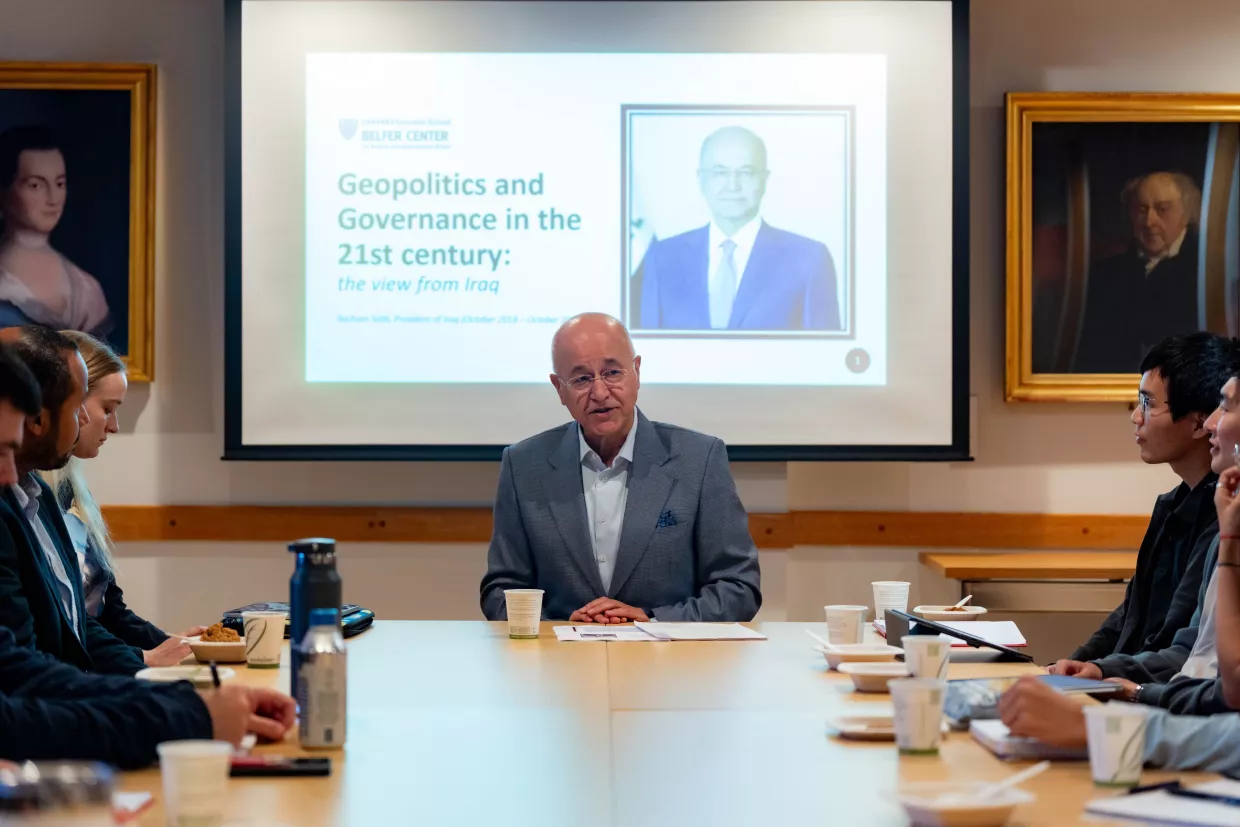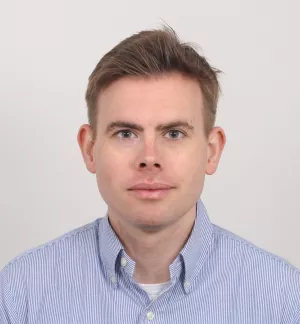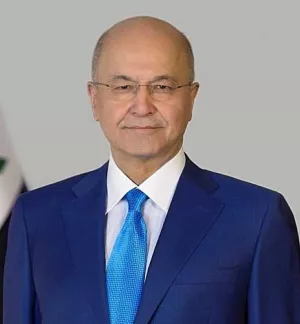In the fall 2024, the Belfer Center and Middle East Initiative Senior Fellow Dr. Barham Salih, former President of Iraq (2018-2022), conducted a study group focused on the recent history and future of Iraq’s political and economic sphere. Participants from across Harvard University benefited from Dr. Salih’s extensive cross-section of public and private sector experience.
A Region in Flux
Dr. Salih’s study group came at a time of escalating change in the Middle East. A major focus was therefore the impact of both domestic and foreign actors on Iraq’s local security, military, and economic dynamics. However, amidst this tumult the promise and talent of the Iraqi people themselves was always present – building, rebuilding, and innovating the country in surprising ways. In a period of climate change, Dr. Salih laid out his vision for a more stable Middle East founded in shared economic cooperation across the neighborhood, economic diversification, and upskilling the labor force.
The immediate aftermath of the U.S. invasion in 2003 showed the promise and peril of an emerging representative governance and the impact of early decisions on the future trajectory of an entire country. Together with notable guests like fmr. Ambassador Matthew Tueller and General (rtd.) David Petraeus, Dr. Salih described the close cooperation between U.S. and Iraqi policymakers to suppress extremism, grow social trust, and expand economic opportunities for all Iraqis. Finally, Dr. Salih emphasized that the work of Iraqi policymakers is far from over: the provision of security must serve as a platform for inclusive economic growth that reaches all Iraqis.
To achieve this, Dr. Salih reflected with Iraq’s fmr. Minister of Finance Dr. Ali Allawi on how Iraq can use its strengths – like its central location in the Middle East – to serve as a motor for regional integration and cooperation. Together with his guests, Dr. Salih showed that a region too often associated with ‘instability’ is in fact filled with hidden opportunity waiting to be unveiled if only policymakers would allow it.

